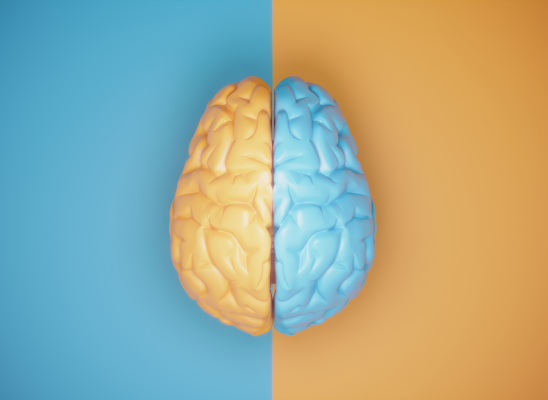
Online test
Find out the severity of your symptoms with this free online test
Living with Obsessive Compulsive Disorder (OCD) can feel like a constant battle with your own thoughts and behaviors. Add social anxiety into the mix, and things can get even more complicated. You don’t like the isolation, but you also don’t want to be judged or feel even more uncomfortable. Both OCD and social anxiety are challenging on their own, but when they occur together, they can reinforce one another, making it harder to cope and easier to feel stuck.
The good news is, you’re not alone and there are ways to effectively manage OCD and social anxiety. The key to managing both of these disorders simultaneously is understanding how they’re different, how they overlap, and finding practical strategies for dealing with them.
Can You Have OCD and Social Anxiety at the Same Time?
So, let’s answer the big question first: Can you have both OCD and social anxiety at the same time?
Yes, you can and in fact, this co-occurrence is quite common. Many people with OCD also experience symptoms of social anxiety and vice versa. Research has shown that about 18% of people with OCD also have Social Anxiety Disorder. One study found a 34.6% lifetime prevalence of social phobia among people with OCD.
It’s very possible for someone to live with both. For instance, a person with OCD may feel compelled to check their door locks multiple times and then feel anxious about someone noticing or judging their behavior, in turn fueling their social anxiety.
Understanding OCD
OCD is a mental health disorder characterized by unwanted, intrusive thoughts (obsessions) and repetitive behaviors or mental acts (compulsions) that individuals feel compelled to perform to alleviate their distress. These obsessions can range from fears of contamination to intense worries about safety, symmetry, or forbidden thoughts.
To reduce the discomfort caused by these obsessions, individuals engage in compulsions, which might include washing, checking, counting, or repeating behaviors. These behaviors can take up substantial time and interfere significantly with daily life.
Understanding Social Anxiety Disorder
Social Anxiety Disorder, also known as social phobia, is a mental health characterized by an intense fear of being judged, embarrassed, or humiliated in social or performance situations. It’s not the same as shyness—it’s a pervasive fear that can interfere with relationships, work, and everyday life.
How Are OCD and Social Anxiety Similar?
While OCD and social anxiety are distinctly different disorders, they share a number of common features.
Excessive Self-Focus
Both OCD and social anxiety involve excessive focus on your thoughts and behaviors. With OCD, you might be hyper-aware of intrusive thoughts or whether you completed a behavior like locking your door. With social anxiety, you might be overly focused on how you present to others or whether you committed some social faux pas that will create judgment from others.
Avoidance
Avoidance is a common coping mechanism with both OCD and social anxiety disorder. With OCD, you may avoid situations that trigger obsessions or acting on a compulsion may draw unwanted attention. With social anxiety, you might avoid social gatherings or certain interactions for fear of being judged or drawing unwanted questions. With both disorders, the avoidant behavior provides short-term respite but can reinforce anxiety over time.
Perfectionism and Fear of Mistakes
Perfectionism is a powerful driver of behavior with both disorders. For many people living with OCD, they feel compelled to perform compulsive tasks “perfectly” to prevent something bad from happening.
For people with social anxiety , there is often a fear of making mistakes that will lead to judgment, embarrassment or unwanted attention. In both disorders, perfectionism creates distress and reinforces unhelpful patterns by increasing the need for control.
Distorted Beliefs
OCD is often driven by distortions in beliefs about responsibility: “If I don’t do this ritual, something bad will happen”. For example, someone with contamination OCD might think, “If I don’t clean this kitchen counter, my kids will get sick.” Taking the action brings relief but it is short-lived, and the fears quickly return and the cycle continues.
Social anxiety creates distorted beliefs about how you may be perceived by others: “Everyone in this room is judging me right now.” Both OCD and social anxiety fuel fears that, in the moment, feel very real to the person experiencing them despite the fact those fears may not be realistic or accurate.
When OCD and Social Anxiety Collide
When OCD meets social anxiety, their dynamics can fuel a self-reinforcing cycle that’s hard to break.
- Social fears can amplify OCD rituals. If you fear judgment, you might hide or mask your compulsions, creating additional distress. Or you may perform compulsions secretly in social settings, which can increase anxiety.
- OCD increases social self-consciousness. Having visible rituals, like needing to count or arrange things a certain way, may increase worries about what others might think or struggle to suppress the behavior in public. These fears can trigger avoidance of social situations.
- Avoidance reinforces both OCD and social anxiety. Avoiding triggers, whether social or obsessive, can feel safe and bring relief from distress. However, that relief is short-lived and the distress inevitably returns. And the illusion of safety that avoidance brings can impede the decision to seek help. Instead of shrinking fears, avoidance amplifies them, allowing OCD to thrive.
Tips for Coping with Social Anxiety When You Also Have OCD
If you find yourself trying to manage OCD and deal with social anxiety, there’s good news. By implementing some practical strategies, you can navigate this situation successfully.
Create Awareness
Notice when and how your OCD and social anxiety interact. For example, if you avoid family events because you worry that others will say something about your rituals, that’s an overlap. Developing awareness is the first step to changing your patterns of behavior. Journaling about your experiences is a great way to begin recognizing triggers and patterns.
Challenge Negative Thoughts
Both OCD and social anxiety thrive on distorted thinking. Cognitive techniques can help you reframe unhelpful thoughts. For example:
With OCD: “If I don’t wipe the counter four times, my kids will get sick.”
With Social Anxiety: “If I give the wrong answer, everyone in the meeting will think I’m stupid.”
You can counteract those thoughts by asking yourself: What evidence do I have that this thought is accurate? Is there another way to see this situation? Over time, this gentle challenge can help reduce the power of these thoughts.
Challenging negative thinking isn’t always easy. Professional guidance can help you learn how to challenge negative thinking effectively.
Build Mindfulness and Acceptance Skills
Mindfulness helps you notice thoughts without needing to suppress or respond to it. When a thought like “My family are all judging me now” pops into your head, instead of reacting, try simply noticing it: “That’s just my anxiety talking.”
Acceptance-based approaches, like Acceptance and Commitment Therapy (ACT), use acceptance and mindfulness strategies, together with commitment and behavior change strategies, to increase psychological flexibility. At its core, the aim of ACT is psychological flexibility, to help a person to face and accept what is out of their control and engage in meaningful activities while uncomfortable thoughts or sensations (such as urges) are present.
ACT encourages people to accept their thoughts, feelings, and urges rather than fighting them, while committing to actions aligned with their values. This can be especially helpful when dealing with the double challenge of OCD and social anxiety.
Practice Self-Compassion
People with OCD and social anxiety are often their own harshest critics. Treat yourself with care and give yourself grace when you stumble. Think of self-compassion as treating yourself as you would treat a good friend. Practicing self-compassion can help to reduce shame and build confidence and resilience. Pay attention to the way you speak to yourself – you’re listening.
Build a Support System
Isolation can worsen both OCD and social anxiety. Enlist support from trusted family and friends. Online forums or support groups can also be a source of support, encouragement and validation.
Seek Professional Support
Trying to deal with OCD and social anxiety can be overwhelming. There are effective evidence-based therapies that can help both OCD and social anxiety.
Cognitive Behavioral Therapy (CBT)
CBT is a type of therapy that helps people recognize and change their negative thought patterns and behaviors. Using a strategy known as cognitive restructuring, people learn how to reframe negative thoughts and reduce avoidance.
Exposure and Response Prevention (ERP)
ERP is the gold standard for treating OCD and is effective for treating social anxiety as well. Exposure refers to the process of gradually and safely confronting situations or thoughts that trigger anxiety or distress but learning how to not act on them (response prevention). By facing your fears in a safe and controlled way, the goal of ERP is to reduce anxiety and help you break the cycle.
If you’re struggling to manage your symptoms on your own, a therapist experienced in treating OCD and social anxiety can help you get on the path to healing and recovery.
Moving Toward Recovery
Living with OCD and social anxiety at the same time is challenging, but it’s not hopeless. Both of these disorders are treatable and with the right strategies, support, and therapy, recovery is possible. You can reclaim control and live authentically and confidently.
Change happens gradually, and every step you take is a step towards healing. Whether it’s challenging a thought, practicing mindfulness, or attending therapy, each action builds momentum towards the healing you seek.
Do you struggle with both OCD and social anxiety? If you’re curious about therapy or wondering where to start, check out StopOCD. You’ll find helpful resources, therapy options, and a team of experienced therapists ready to help you get on the path to recovery. You don’t have to do this alone. StopOCD is here to help.
References
1. Pallanti, S., Grassi, G., Sarrecchia, E. D., Cantisani, A., & Pellegrini, M. (2011). Obsessive–compulsive disorder comorbidity: Clinical assessment and therapeutic implications. Frontiers in Psychiatry, 2. https://www.frontiersin.org/journals/psychiatry/articles/10.3389/fpsyt.2011.00070/full
2. Assunção, M. C., Lucas da Conceição Costa, D., Mathis, M. A., Gedanke Shavitt, R., Arzeno Ferrão, Y., Rosário, M. C., Constantino Miguel, E., & Rodrigues Torres, A. (2012). Social phobia in obsessive-compulsive disorder: Prevalence and correlates. Journal of Affective Disorders, 143(1-3), 138-147. https://www.sciencedirect.com/science/article/abs/pii/S0165032712004016?via%3Dihub
3. Substance Abuse and Mental Health Services Administration. DSM-5 Changes: Implications for Child Serious Emotional Disturbance [Internet]. Rockville (MD): Substance Abuse and Mental Health Services Administration (US); 2016 Jun. Table 16, DSM-IV to DSM-5 Social Phobia/Social Anxiety Disorder Comparison. Available from: https://www.ncbi.nlm.nih.gov/books/NBK519712/table/ch3.t12/
4. Carpita, B., Muti, D., Petrucci, A., Romeo, F., Gesi, C., Marazziti, D., Carmassi, C., & Dell'Osso, L. (2020). Overlapping features between social anxiety and obsessive-compulsive spectrum in a clinical sample and in healthy controls: toward an integrative model. CNS spectrums, 25(4), 527–534. https://pubmed.ncbi.nlm.nih.gov/31576793/
5. Teunisse, A. K., Pembroke, L., O'Gradey-Lee, M., Sy, M., Rapee, R. M., Wuthrich, V. M., Creswell, C., & Hudson, J. L. (2022). A scoping review investigating the use of exposure for the treatment and targeted prevention of anxiety and related disorders in young people. JCPP advances, 2(2), e12080. https://pmc.ncbi.nlm.nih.gov/articles/PMC10242975/
Online test
Find out the severity of your symptoms with this free online test
Start your journey with StopOCD
Take control of your life and find freedom from OCD through professional therapy and evidence-based cognitive behavioral techniques.
Start Now



